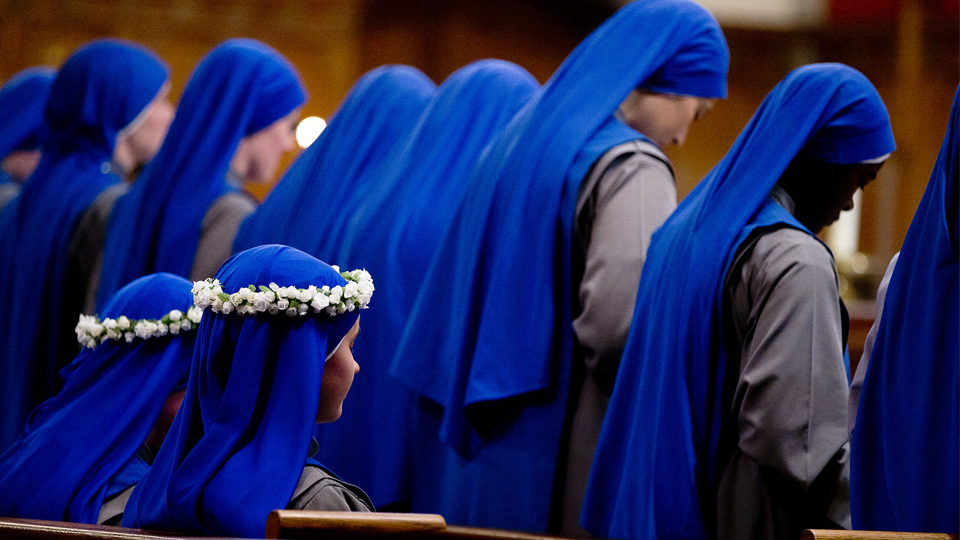More than two hundred and fifty bishops from around the world are currently meeting in Rome to discuss “young people, the faith, and vocational discernment”. But as the
Instrumentum laboris of the synod admits, what people mean by “vocation” and “discernment” is not always clear.
There are a lot of misconceptions about vocation: what it is, how it is discovered, and what one does with it. Let’s take a look at some of these myths surrounding vocation and discernment and see if by unravelling what’s not true about them we might come to a better understanding of what they are and how they work.
Myth #1: A vocation is a calling to the priesthood or religious life.
This is by far the most common misconception about vocation and one that is pointed out in the
Instrumentum laboris of the synod. I think the fault here is bidirectional.
Many ordinary Catholics want to see God as restricted to certain aspects of life and to certain times and places rather than an intimate companion whose Spirit permeates every facet of our existence. More and more, though, people are feeling free to explore the spiritual life that takes place beyond buildings and outside institutional religions. And certainly, the general appreciation for the capacity for holiness within the life of the laity is increasing. However, old habits and ideas die hard, and among the majority of Catholics, there is simply no understanding that God has a plan for each of our lives, that He wants to share it with us, and that we can ask Him.
The fault comes from the top as well. Many people simply are not taught about vocation, and the only time they hear the word is when they pray in Mass for “vocations to the priesthood and religious life”. We don’t pray that all people may follow their particular calling, whatever that may be, but that God will “send more vocations” to the priesthood and religious life in that preposterous wording that turns a calling into a person. No wonder people are confused!
Most diocesan and parish discernment resources are restricted to encouraging young people to explore vocations to the priesthood and/or religious life. While this type of support is vital in a discouraging and often anti-religious social environment, this exclusivity is alienating for the majority of young parishioners and perpetuates a false perception that God is only interested in our life choices if they involve a collar or a veil.
But the truth is that God has created every human being as unique and unrepeatable, and He has called each one of us to a life story that is unique and in which we participate with Him. One of the most beautiful expressions I have found of this reality comes from Blessed John Henry Newman, and since he was a much better writer than I am, I will share his meditation rather than paraphrase it myself:
God has created all things for good; all things for their greatest good; everything for its own good. What is the good of one is not the good of another; what makes one man happy would make another unhappy. God has determined, unless I interfere with His plan, that I should reach that which will be my greatest happiness. He looks on me individually, He calls me by my name, He knows what I can do, what I can best be, what is my greatest happiness, and He means to give it me.
God knows what is my greatest happiness, but I do not. There is no rule about what is happy and good; what suits one would not suit another. And the ways by which perfection is reached vary very much; the medicines necessary for our souls are very different from each other. Thus God leads us by strange ways; we know He wills our happiness, but we neither know what our happiness is, nor the way. We are blind; left to ourselves we should take the wrong way; we must leave it to Him.
Let us put ourselves into His hands, and not be startled though He leads us by a strange way, a mirabilis via, as the Church speaks. Let us be sure He will lead us right, that He will bring us to that which is, not indeed what we think best, nor what is best for another, but what is best for us.
St. Ignatius of Loyola teaches that every human being is created to know, love, and serve God, and that everything in life serves either to lead us toward the fulfillment of that end or to draw us away from it.
This is the primal vocation. Whatever else we may do in life, whatever else we may feel called to – priesthood, marriage, career – first and foremost, we are each called to fulfill that vocation of knowledge, love, and service. This is important to understand and to remember.
All of the other vocations are secondary – not just because they rank lower in importance but because they should lead us to the fulfillment of that first vocation. If they don’t, then they’re not from God. It’s that simple.
Discerning, however, where those feelings of vocation come from and where they are leading is not quite so simple. Which leads us to
Myth #2.
